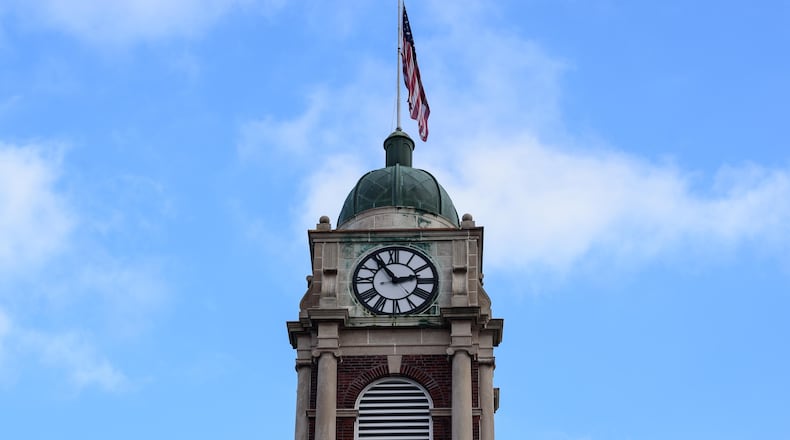Mathews said the proposed ordinance will be introduced at Tuesday’s Lebanon council meeting, along with a resolution congratulating the anti-abortion movement on the Supreme Court’s historic Dobbs v. Jackson Women’s Health Organization decision.
Mathews said the city is in a lawsuit with the ACLU Ohio concerning its controversial 2021 Sanctuary City for the Unborn ordinance. Mathews said the revised ordinance “is the same policy as before” and clarifies the ordinance’s language. The ACLU litigation remains pending in U.S. District Court in Cincinnati.
Mathews said the revised ordinance makes it clear that a woman can leave Lebanon to seek out abortion services without penalty, because the city cannot control people coming or going.
In the proposed ordinance, the term “abortion” does not include either:
- In vitro fertilization or fertility treatments of any type; or
- The use, prescription, administration, procuring, or selling of Plan B, morning-after pills, intrauterine devices, or any other type of contraception or emergency contraception.
Mathews said the ordinance and resolution show a desire by council to express its policy position and to keep its ordinance short and clean.
In late May, Lebanon officials signed a stipulation signaling that the city would amend its law that criminalizes those who assist people in accessing abortion care, according to the ACLU of Ohio.
The Sanctuary City for the Unborn ordinance makes it unlawful to provide or aid an abortion within city limits, which includes providing money, transportation or instructions for an abortion. Anyone convicted of the misdemeanor offense faces up to to six months in jail and a $1,000 fine. Lebanon has had no arrests, and the city has no abortion services providers.
Lebanon was the first city in Ohio to enact a Sanctuary City for the Unborn ordinance.
Mathews, a local anti-abortion leader, is the GOP nominee for Ohio House District 56 in the November general election. His opponent is Democrat Joy Bennett of Mason, who helped lead the effort to overturn Mason’s Sanctuary City ordinance.
Alicia Lipton, a resident who spoke out against Sanctuary City for the Unborn legislation in Lebanon and Mason, said local abortion rights supporters will be at the council meeting to listen and hear the proposed changes.
“The truth remains that this is a decision that city government should not be making, because it’s federal law,” she said. “City officials should be focusing on city business.”
Lipton said Mathews has been using this issue for his political purposes. “He needs to stay out of women’s health issues.”
About the Author

